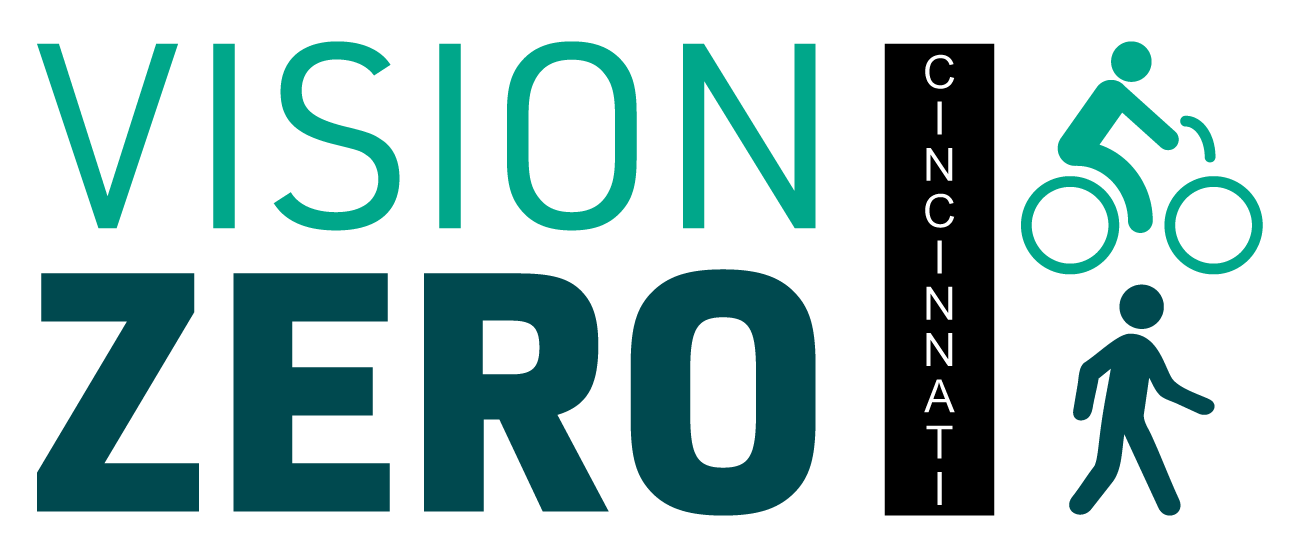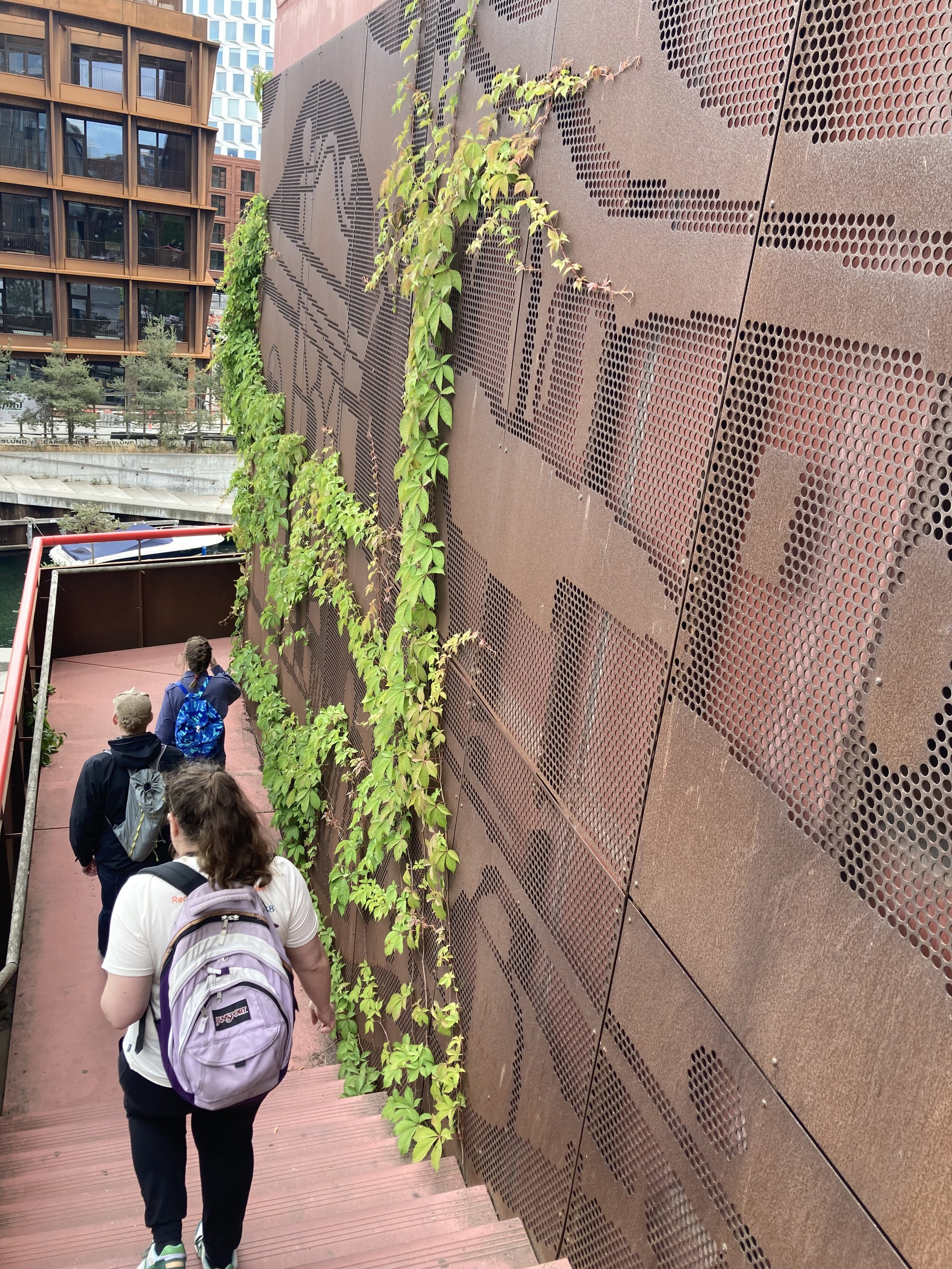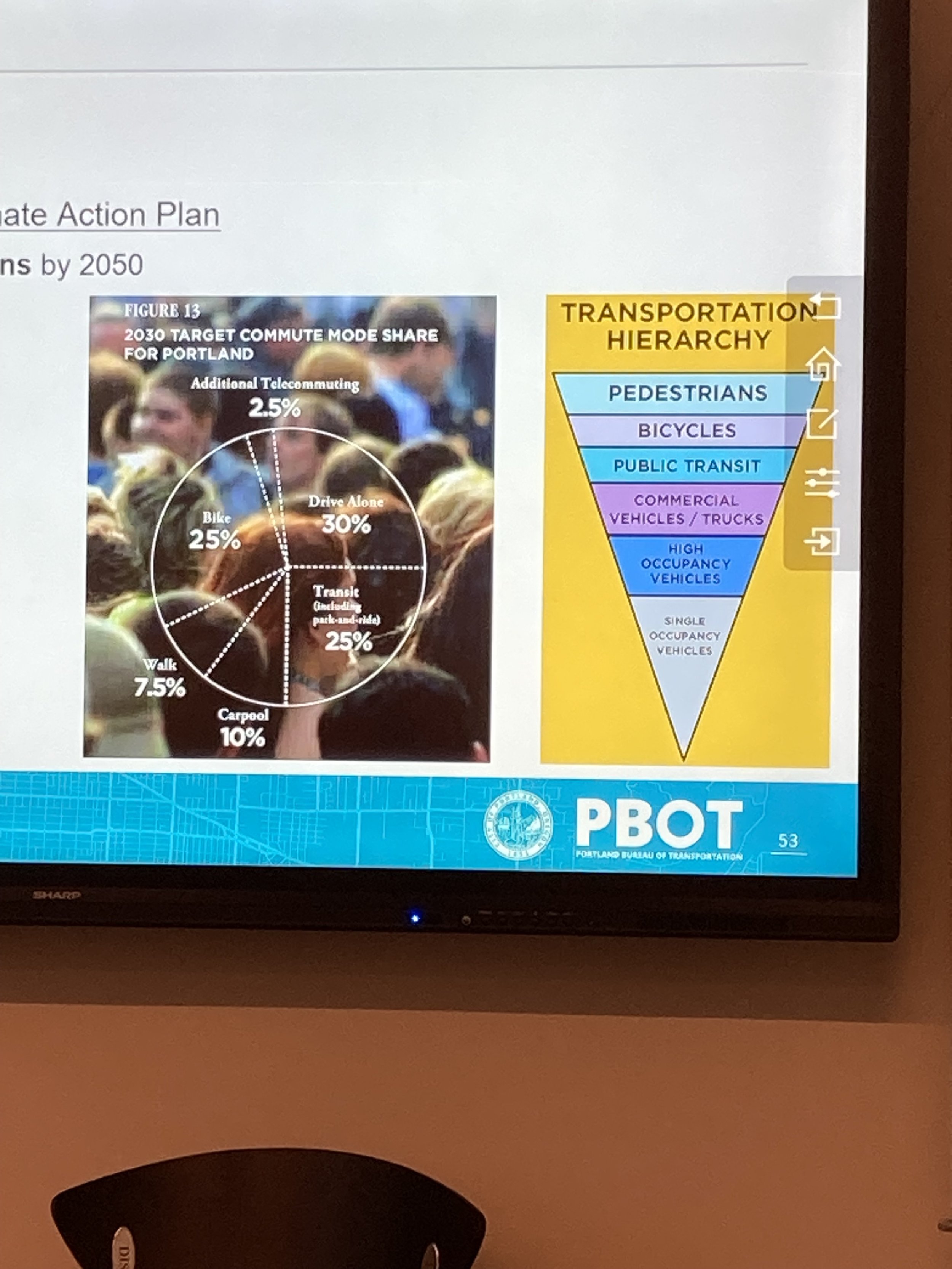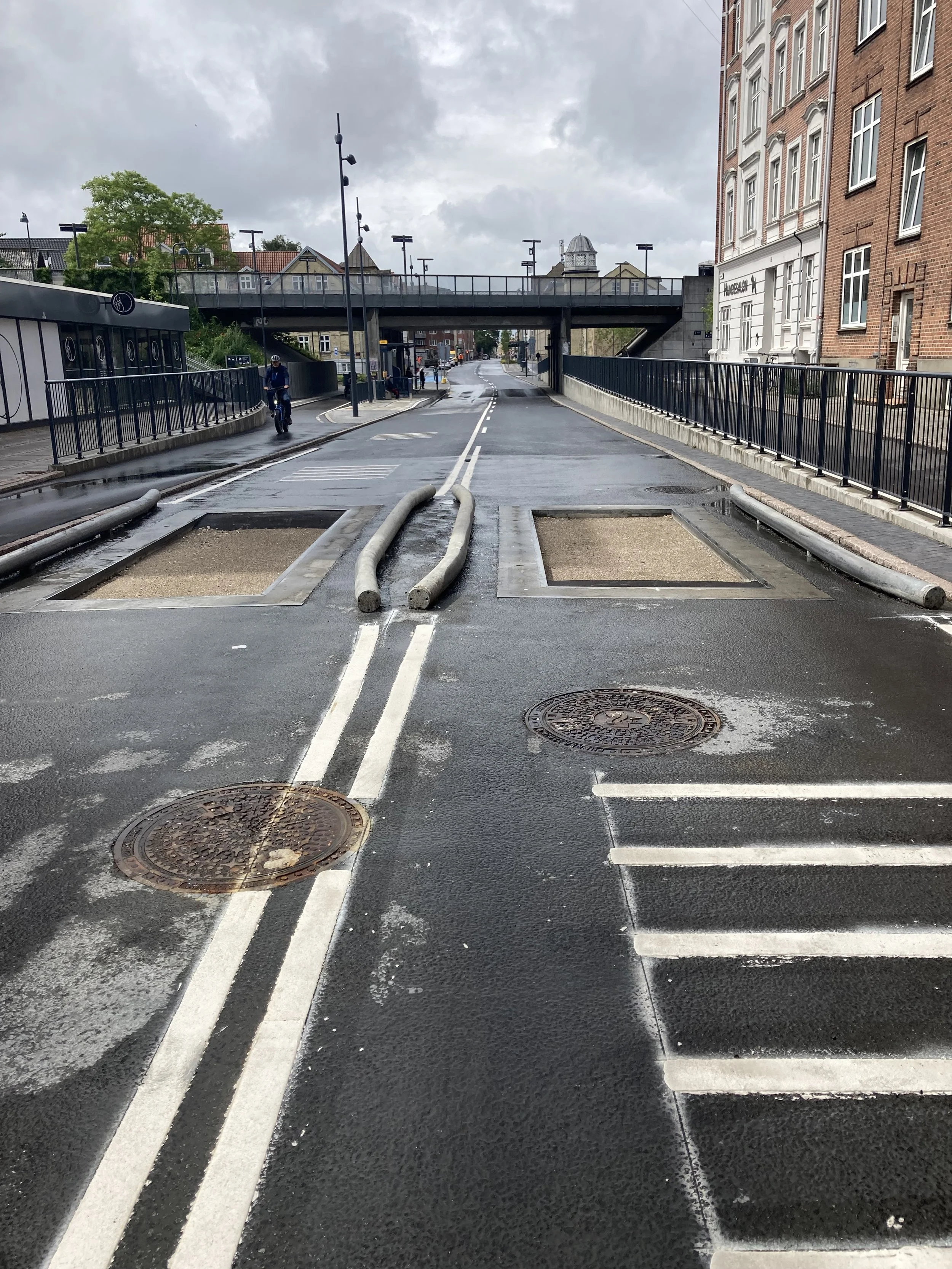On Monday, September 18th, Vision Zero Advocates GAthered for Happy hour at Darkness Brewing to discuss ideas and hear from Cincy Red bike’s Engagement Manager, Elese Daniel. Here are some highlights:
“All of these places that we admire – Copenhagen, Northern Denmark, Sweden, cool things in Chicago, cool things in LA…think of the place where you’re like, man, I loved biking there, I loved walking there. Those were all choices that people made.”
Elese Daniel, Cincy Red Bike Engagement Manager—and Devou Good Foundation Scholarship winner—shared highlights from her experience earlier this summer in Denmark as part of a Sustainable Transportation and Land Use Course with Portland State University’s Transportation Research and Education Center. The IBPI Study Abroad is an immersive experience exploring approaches to cycling, transit, innovative mobility, and land use. Daniel’s role at Cincy Red Bike is based around equity, access, and engagement.
The link to the livestream of Daniel’s presentation and the audience Q&A is here, and the travel blog she kept can be found here. More about Bike and Pedestrian Workshop scholarships from the Devou Good Foundation can be found here.
Sharing that she spent a lot of time in Denmark hearing from architects, planners, and a mix of traffic safety planners, Daniel shared, “Architects do a lot more creative, culturally nuanced work like pedestrian plazas: things that are oriented around, ‘How do we make this make sense for the user based on what their needs are?’”
Daniel also shared, “I come from the world of bikes, so it was good to learn a bit more when it comes to buses and light rail and trains and land use especially.” A couple of creative land-use alternatives were traffic gardens (i.e. a miniature street network for children to practice their biking and pedestrian skills in a safe, car-free space—Tri-State Trails is working on one in Dayton!) and the multi-use parking garage.
“Land use stuff was very new to me; it was actually a very beautiful parking garage, not like you get to say that often. It was metal on the sides with this artistic design on the side—but then there’s also plant life that’s growing through it.” Daniel shared that there was also a button where people could sprint up to the top of the garage, making it accessible for exercise and racing games up the side of the staircases. At the top of the parking garage, there was a playground, trampolines, and adult fitness kind of areas. “It was all very cool for all of that to be at the very top of the space.”
“I did not know that I was going to learn so much about bike parking! That is not as big of an issue for us here (yet!) but definitely in Los Angeles and New York and Chicago it’s a bit more of an issue that they have to think about.”
Daniel continued, “Here [in Copenhagen], the level of nuance to bike parking was a very cool thing to learn. The entire time we were talking to Metro who runs the train system, like the subway system. So much of what one of the individuals I was talking to was the layers of work and consideration that she and her team put into bike parking.”
Transportation hierarchy shown above: who are you planning for or around the most?
Daniel shared that most of Denmark’s roadways are really slow speed: “‘20 is plenty’, you hear that saying a lot,” emphasizing the importance of making infrastructure and engineering decisions that force people to slow down outside of just asking them to.
The ultimate takeaway shared from her travels: prioritizing your most vulnerable user creates a safer environment for all traffic users.
“I want to bring that back into this space…so what can we do here now?”
Daniel shared about showing that you care, and that there’s work being done, with examples of more drastic things for active transportation safety like sand pits (shown in the photo above) on the bus rapid transit line in northern Denmark. “We see it a little here with speed humps, making it inconvenient for drivers.”
The call to imagine in Daniel’s closing statement was powerful: showing that it’s possible to change or that it’s possible to do something different.
“All of these places that we admire—Copenhagen, Northern Denmark, Sweden, cool things in Chicago, cool things in LA…think of the place where you’re like, man, I loved biking there, I loved walking there. Those were all choices that people made.
That’s a built environment sort of space. And we can choose to behave and change the way that we’re doing things. And it’s a lot of our work—not exclusively ours alone, but it’s our work I think to keep advocating for that change and to keep challenging people to decide to do that. Give them conveniences or show them that it’s possible and show them examples in other places.
So yeah, it was an amazing opportunity. I’m really grateful that I got to go. I hope I brought back some fun, exciting encouragments. And yeah, that’s all I got. That’s all I got, and we can chat.”
Daniel’s final thoughts on her last slide: The cities we admire made intentional choices to change and reevaluate their priorities. They’re built from idea, choice, and action. We can choose to change. We can show people what’s possible.
There were some interesting threads pulled in the Q&A, among them:
Elese mentioned that there was a raised cycle track which was, “new and cool”
DOTE liaison and North Bend resident Felicia Eschenlohr shared that with the College Hill Traffic Calming measures, “These kids are biking to school now that there’s a bike lane, and I think their parents are allowing them to bike to school now.”
Elese mentioned the importance of the visibility of cyclists and safety in numbers and campaigning around that: “Not only do you need infrastructure, but you need friends in the process. ‘I want to bike, but these are my barriers.’ [You need] people to show you safe routes, safe streets, and take you on those group routes.”
Elese shared some of her experience of becoming a more confident cyclist: “I never felt comfortable riding alone until I did a ton of group routes; I became more of a confident cyclist by participating in those. We have a decent number of those in our cities, and I think that’s a key component of it too.”
Mentioning Equicity in Chicago and a term coined by Olatunji Oboi Reed, Elese shared,
“Social infrastructure would be—this is my understanding of it—any organization or people that are working directly with people who are riding, walking, and encouraging them the skills to be stronger, more confident, more comfortable, etc. I think that’s social infrastructure and I think that bike share plays a role in that.”
“I made that phrase the gateway bike because maybe you use this for a while, maybe you are a cyclist already and don’t really need us, but you get that one-off bike to some meeting that you got to get to and you needed a bike in an emergency.
Just the folks that are connecting people and encouraging them and making them a little bit stronger and more confident in the ways that they can access and use the transportation tools around them.
I would also say social infrastructure Cam and Metro being your commute concierge and teaching you how to use the bus system, I think that’s within the social infrastructure world. All of our work as advocates; I think that’s a part of that social infrastructure work too.”
Lastly, there was talk of Tri-State Trails doing their first Tour de Crown & discussion around expanding the streetcar to Union Terminal
Overall, it was a lovely time with a great turnout. Cheers, and thanks to Darkness Brewing for hosting us!
More about Elese Daniel:
Elese Daniel has worked in the micromobility field for the past six years, in both nonprofit and for-profit bikeshare. She is currently the Engagement Manager for Red Bike, the nonprofit, station-based system serving Cincinnati and Northern Kentucky.
Her work prioritizes equitable and inclusive bikeshare initiatives. She believes bikeshare is a reliable, fun, and sustainable way to connect people to places and each other. She does this through community engagement and outreach, events and rides, programming, and partnerships.
Elese created the nationally lauded access program, Red Bike Go. She worked with e-bike policy and research experts to educate civic and community leaders while running the BCycle system in Nashville, Tennessee. She was a 2022-23 NACTO Transportation Justice Fellow and she’s headed to Canada later this month to present at the annual NABSA Conference.









